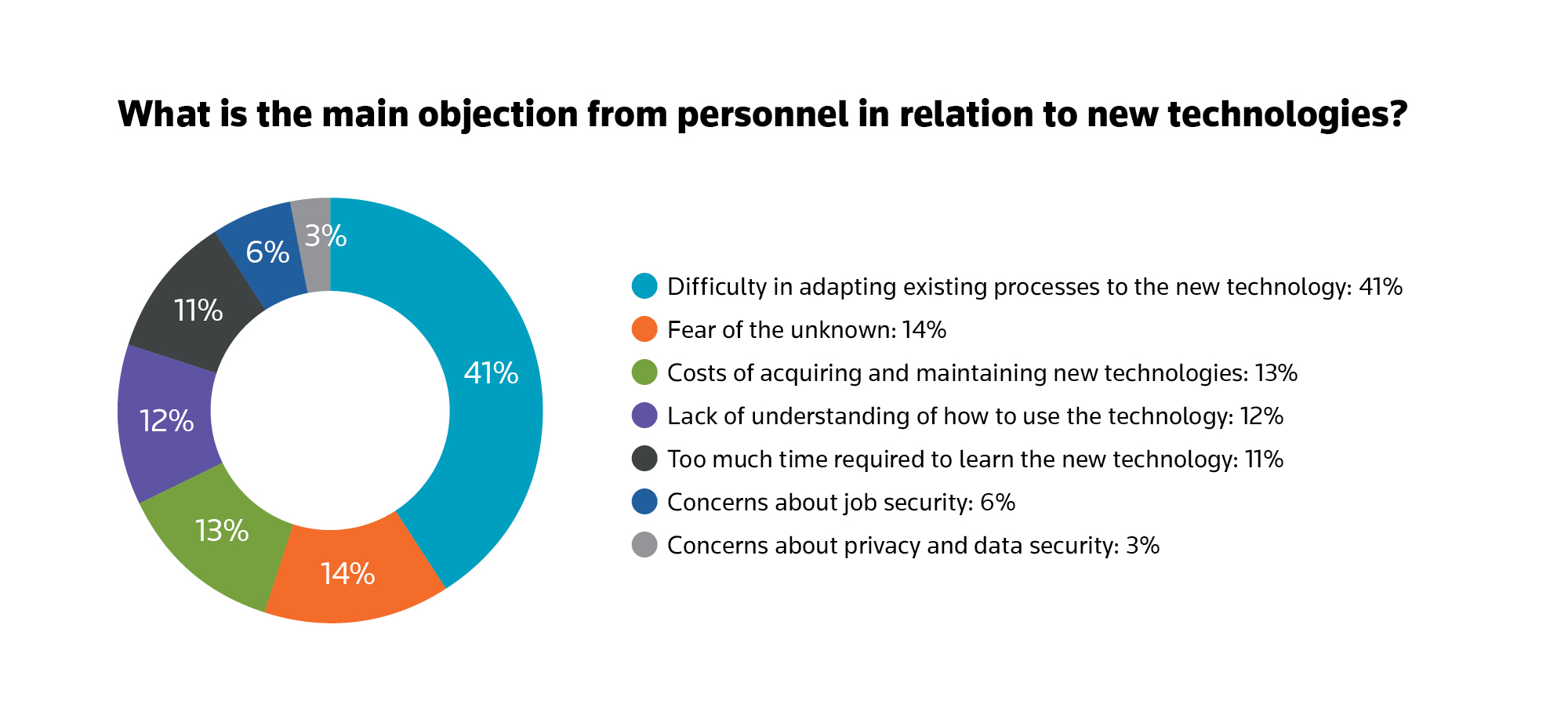Culture of learning is key to a workforce ready to adapt and innovate
SYDNEY, Australia – While a majority of logistics organizations (78%) have invested in new visibility technology since 2020, more focus on the ‘human factor’ is needed for successful digital transformation in the logistics industry, finds new research commissioned by CargoWise.
The study, Unlocking the future: Embracing digital transformation in logistics, surveyed 468 logistics and supply chain professionals globally between March-April 2023.
Logistics and supply chain companies cited a lack of resources to drive adoption (53%) and workforce resistance (38%) as the top two challenges to implementing technologies that enabled more visibility throughout their operations.
The main workforce objections to new technologies reported by logistics and supply chain organizations are concerns about adapting existing processes to new technology (41%), learning and understanding how to use it (23%), and a general fear of the unknown (14%).

“Successful digital transformation in the logistics industry involves more than just great technology. The ‘human factor’ is critical. People may be hesitant to abandon familiar methods in favor of new technologies if they don’t see the anticipated business benefits, if they don’t believe the benefits can be achieved, or if they are not confident that they can succeed with the new tools or methods,” said Dr Tudor Maxwell, Head of WiseTech Academy, WiseTech Global.
More than half (53%) of the logistics and supply chain organizations surveyed said they lacked the resources to drive adoption.
“Ensuring people are willing, confident and skilled to use the new digital tools and processes is fundamental to successful digital implementations. Two key areas to focus on are communication and training. This starts with a compelling description of what needs to be done, why change is necessary and the risks of inaction. It involves open communication with relevant stakeholders and change champions, inviting them to influence the direction of the transformation or the approach to the implementation.
“Once an influential core group has consensus, then the focus shifts to waves of communication across others in the organization to raise awareness and then build the knowledge and skills required for people to perform their roles in the new environment. This is where online learning is a powerful enabler: providing the right information, targeted to the right people at the right time, blended with opportunities to practice or be mentored in the workplace. A culture of continuous learning accelerates transformation by engaging more of the workforce more quickly. It enables an environment in which people contribute freely and receive guidance or support,” explained Dr Maxwell.
The majority (77%) of survey respondents recognize that extensive training on the new processes and technologies is critical to digital transformation success.
“Organizations can leverage the power of continuous learning to create teams that are able to adapt and innovate. eLearning programs enable employees to gain skills and explore trends, tools and techniques, creating a culture of learning and an openness to new ideas. This supports an environment where existing processes can be automated. It also opens the door to rethink and improve processes to suit evolving business needs and customers’ expectations,” Dr Maxwell concluded.
Download the full report here.
Survey methodology
The Unlocking the future: Embracing digital transformation in logistics survey was conducted by Reuters Events and polled 468 logistics and supply chain professionals between March and April 2023. Respondents included logistics solutions providers, manufacturers, 4PL, 3PL and freight teams, retailers and other supply chain professionals from across the North American, Latin American, EMEA and Asia Pacific regions.
